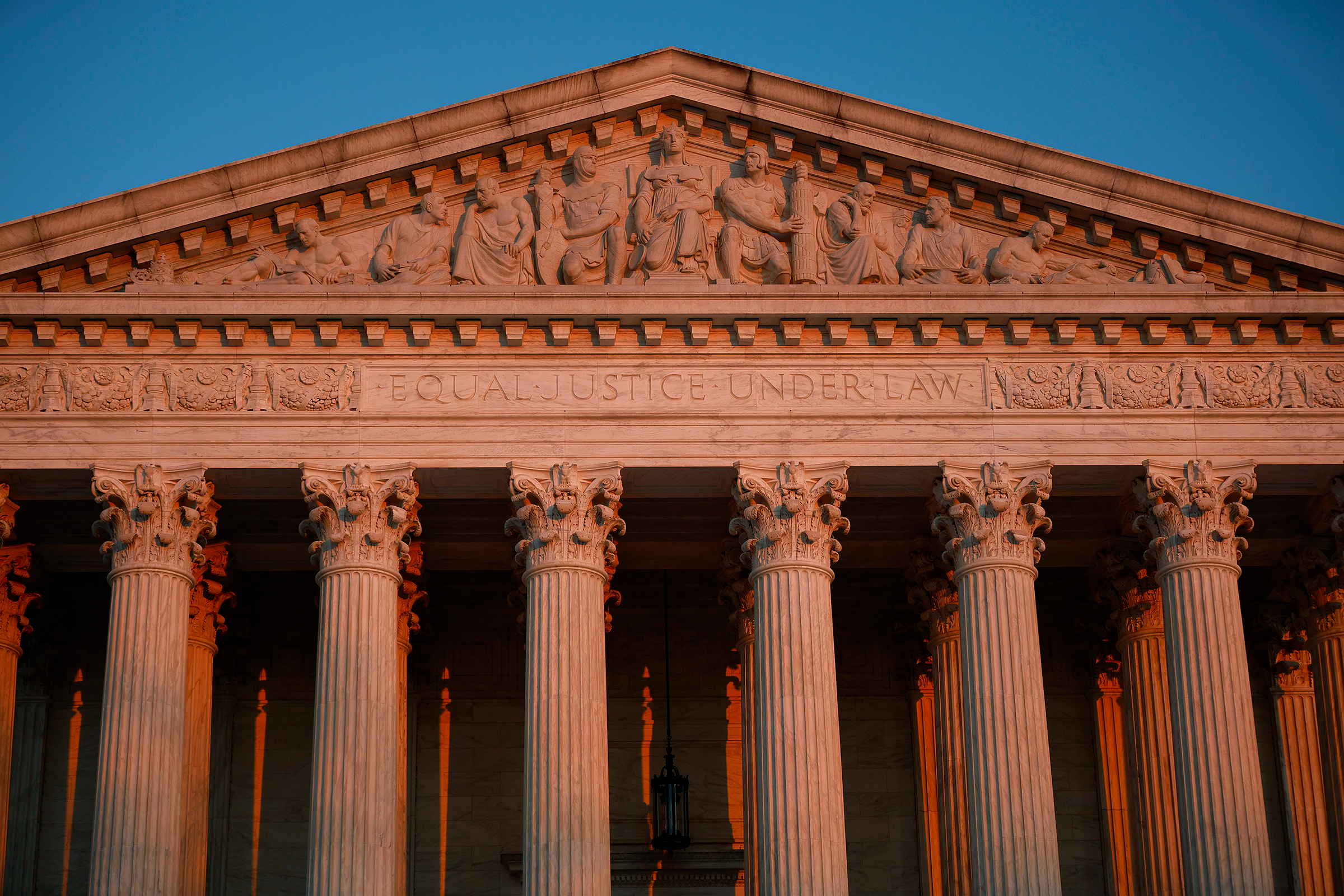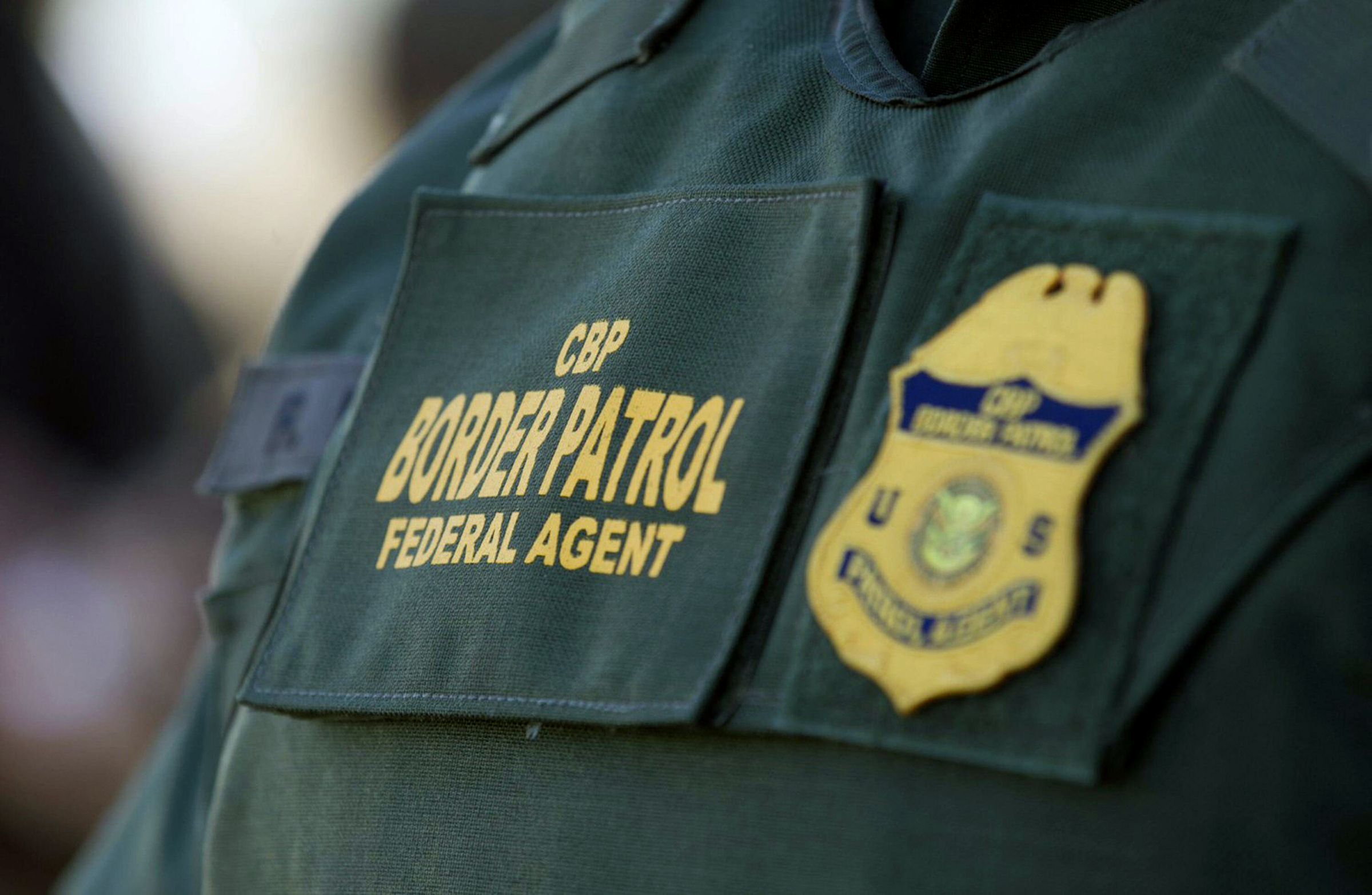
Eight years ago, a U.S. Border Patrol agent got into a fight with a bed-and-breakfast owner in Blaine, Wash. Now, the facts of that fracas, as presented to the U.S. Supreme Court, may shape whether federal law enforcement officers can be sued generally for actions taken while performing their jobs.
In March 2014, bed-and-breakfast owner Robert Boule says Border Patrol Agent Erik Egbert was interested in a guest, who was due to arrive from Turkey via New York. Boule alleges that Egbert refused to leave his property, and once the car driving the guest arrived, he attempted to search it without a warrant. Boule says he stepped between the car and Egbert, at which point the agent shoved him, “grabbed him and pushed him to the ground.” Boule says the encounter left him with back and hip injuries severe enough to require him to seek medical treatment. Egbert ultimately concluded the guest was in the country lawfully and left. Boule alleges that when he complained to Egbert’s supervisor about the incident, Egbert contacted the IRS, who then investigated Boule’s business.
In 2017, Boule sued Egbert for violating his First and Fourth Amendment rights. The claim has since worked its way up to the U.S. Supreme Court, which will hear oral arguments on Wednesday. The justices’ decision could have sweeping implications far beyond the two men’s dispute. A broad court ruling could shape whether and how federal Border Patrol agents—or federal law enforcement officers generally—can be sued for alleged wrongdoing. “This case goes to the heart of the rule of law and fundamental principles of constitutional accountability,” says David H. Gans, the director of the human rights, civil rights and citizenship program at the progressive Constitutional Accountability Center, which filed a brief in support of Boule.
The case hinges on the 1971 Supreme Court decision Bivens v. Six Unknown Named Agents, which allowed federal lawsuits to be brought against federal officers who violate the Constitution. In the decades since Bivens, the high court has slowly watered down the case’s power, most recently in a 2020 decision, Hernández v. Mesa, which found that lawsuits against federal border patrol agents cannot be brought in the instance of a cross-border shooting. In a concurring opinion, Justice Clarence Thomas argued that “the time has come to consider discarding the Bivens doctrine altogether.”

In his petition before the high court, Egbert asked the Supreme Court to do just that. While the justices declined to reconsider the constitutionality of Bivens entirely, they agreed to hear whether Boule has grounds to bring his lawsuit. Egbert argues that Bivens does not give Boule the authority to sue a federal officer, and a district could agreed with him. The 9th Circuit overruled that decision in 2020. The Supreme Court will now determine who was right.
“It’s a really extreme position,” says Cecillia Wang, the deputy legal director of the American Civil Liberties Union (ACLU), which filed a brief in support of Boule. “[Egbert] says basically if your constitutional rights are violated by a federal police officer, you’re out of luck.”
In court filings, Boule admits that people have used the property of his B&B—which is cheekily called The Smuggler’s Inn—“for illicit border crossings in both directions.” Vox reports that in 2018 Canada criminally charged Boule with allegedly helping foreign nationals illegally enter the country, although those charges were later dismissed.
Egbert had reason to be on the property for “border patrol related operations,” says Jennifer Mascott, a professor at Antonin Scalia Law School at George Mason University, who filed a brief in support of the agent. She argues there are several “administrative mechanisms” available for holding Egbert accountable for any wrongdoing beyond civil lawsuits against him, and says that the case raises crucial questions about the separation of powers between the high court and Congress.
“[The court’s] going to be looking at: who decides? Is it them? Does the Supreme Court get to decide when damages are awarded? Or is it Congress?” Mascott says. She adds that in recent years, Congress has been hesitant to authorize lawsuits against law enforcement officers out of concern for officers’ well-being and job performance. They may be less likely to perform their job as they see fit if they feared federal lawsuits that could threaten their personal assets.
The Biden Administration has filed a brief in the case taking a less extreme position than Egbert. DOJ officials argue that Bivens does not grant Boule the authority to bring a lawsuit against a federal border patrol agent because the encounter was so close to the U.S.-Canada border.
Wang of the ACLU argues the position is still a “gross expansion” of the Supreme Court’s 2020 decision in Hernández, which was brought by a Mexican family against a border patrol agent who allegedly shot and killed their son across the Mexican border. The high court’s decision in that case addressed a cross-border situation. The incident between Boule and Egbert took place entirely in the United States.
In their brief, the ACLU points out that U.S. Customs and Border Protection is the largest federal law enforcement agency, with an annual budget of $17.7 billion and statutory powers to conduct warrantless searches within 100 miles of U.S. borders—areas that encompass 65.3% of the U.S. population.
“If the court reaches the conclusion that you can’t have Bivens remedies against all border patrol agents,” Wang says, “it is letting the largest federal police agency in the country get away with misconduct with impunity.”
It’s unclear how sweeping the court’s ruling will be. It could decide narrowly on the question of whether Boule can sue Egbert. Or it could decide broadly and reshape the legal tools available to Americans to hold federal law enforcement officers accountable when they violate the Constitution.
More Must-Reads From TIME
- The 100 Most Influential People of 2024
- Coco Gauff Is Playing for Herself Now
- Scenes From Pro-Palestinian Encampments Across U.S. Universities
- 6 Compliments That Land Every Time
- If You're Dating Right Now , You're Brave: Column
- The AI That Could Heal a Divided Internet
- Fallout Is a Brilliant Model for the Future of Video Game Adaptations
- Want Weekly Recs on What to Watch, Read, and More? Sign Up for Worth Your Time
Write to Madeleine Carlisle at madeleine.carlisle@time.com